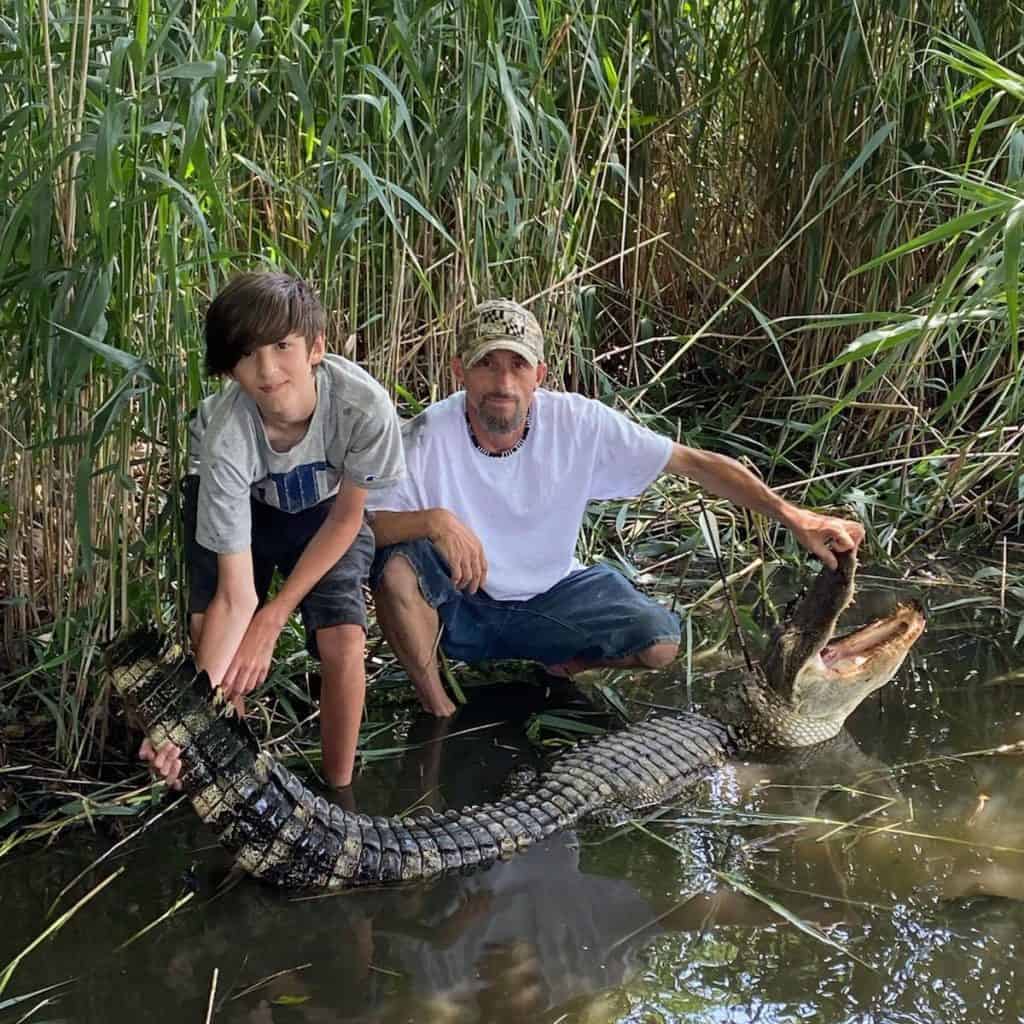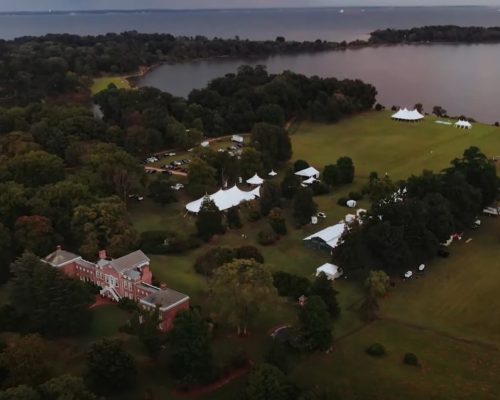The jaw-dropping story spread quickly through the Bay region: a large alligator reportedly caught between two beaches along the Chesapeake in Calvert County, Md. on Sunday.
Now, hunter William Adams is revealing to Bay Bulletin how he caught and killed the gator with his 14-year-old son by his side. Williams and his son Jake had spotted an alligator a couple of weeks earlier, while kayak fishing for snakeheads between Seahorse Beach and Driftwood Beach just north of Drum Point. In a Facebook post, William’s wife Jessica Adams writes, “His first reaction was to kayak away as fast as possible all while yelling to my son, ‘It’s an alligator! Go!'”
Adams and his friends had gone back to look for the gator without success. Then, she recounts, “My son and him went out on Father’s Day, prepared this time, and they got him.”
“Prepared” is right: Adams says he researched trapping alligators, even getting tips from the History Channel. He describes using heavy-duty rope tied to a tree, with a chicken on a hook attached to the other end. He set the chicken about a foot from the water. The trap is designed to hook a gator as soon as it tried to swallow the chicken, and when the reptile tries to swim away, it’s secured to the tree.
Apparently, the strategy worked on Saturday.
“I got my line set and all that stuff and then I went back there Saturday afternoon, like right at the edge of dark and put the lines out, because alligators eat at nighttime.,” says Adams. “So I set lines in the tree and everything. And then Sunday morning first thing when I got up I went right there to get it and it was on one of those chicken lines.”
Adams says the gator snapped at him a few times before he was able to get a clear shot with his crossbow, killing the American alligator, which he measured with his tape measure at 7’6″. The species is not native to the Chesapeake Bay region, and according to the National Wildlife Federation, its range goes no further north than North Carolina.
The Maryland Department of Natural Resources (DNR) is not directly confirming the catch. In a statement to Bay Bulletin, DNR spokesman Gregg Bortz says, “Maryland Natural Resources Police are still consulting with allied agencies, local and federal, on this matter.”
Adams tells Bay Bulletin he called DNR after capturing and killing the gator, asking if he was “in trouble”. He claims the agency was more concerned about how the nearly 8-foot animal got there.
The American alligator is protected under federal law, but individual states have regulated hunting seasons with specific guidelines and required permits, according to the U.S. Fish and Wildlife Service.
Brenden Bosmans, Director of the Maryland Reptile Conservation Center, says he looks forward to hearing the results of any investigation by Natural Resources Police and their partner agencies.
Bosmans tells Bay Bulletin, “This situation absolutely could have been handled in a way that would not have resulted in the death of the animal.”
But Adams feels he did what he had to do. “If I knew the alligator was in there and I find out some little kid got hurt by it, then that would bother me for the rest of my life.”
Responding to criticism over her husband’s killing of the alligator, Jessica Adams says, “He did what he thought was best and he has no regrets.” Adams says children and pets frequently play on the beaches where the alligator was found. “My husband is not just a mean animal-hating man, he hunts, he fishes and he eats everything that he hunts for.”
William Adams tells us the alligator is in their freezer, and they cooked gator bites for dinner, tossed in flour and Old Bay. And yes, he says they do taste like chicken.
Bortz says it’s not the first time residents have reported alligator sightings nearby. “There have been occasional rumors of alligators in the Calvert County area previously but none could be confirmed by DNR.”
Have alligators ever turned up on the Chesapeake Bay before? The most notable precedent for this case was in 2015, when a five-foot-long alligator was found dead on protected land. The Susquehannock Wildlife Society said at the time that it was likely an exotic pet released when its owners could no longer care for it.
“We have had alligators or other non-native crocodilians show up in the wild in Maryland in the past. Occasionally people who have illegally kept pet alligators release them into the wild,” Bortz says.
Bay Bulletin will stay on this case and report any updates when they’re available.
–Meg Walburn Viviano & Cheryl Costello




